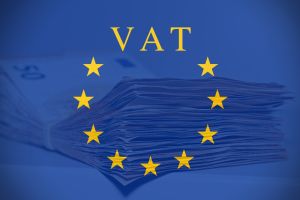
Odette working to safeguard decades of automotive investment in e-invoicing
14 Feb 2024
In 2019 the EU-27 VAT revenue loss was estimated at EUR 134 billion, with missing trader intra-community fraud ranging between EUR 40-60 billion. To reduce this latter ‘VAT gap’, the EU has brought in the ViDA (VAT in the Digital Age) Directive which, amongst other measures, will replace periodic reports on intra-EU deliveries and services with transaction based digital tax reports which must be submitted no later than two working days after an invoice is issued. To ensure that this is possible, eInvoicing will also become a mandatory requirement for B2B invoicing.
On the face of it, we could assume that the standardisation of VAT reporting and the obligation to use structured electronic invoicing across the EU is a good thing but there is a ‘fly in the ointment’ or two flies, in fact. Mandatory eInvoicing was originally introduced by the EU for business to government (B2G) invoicing and for this purpose they mandated that an eInvoicing standard EN16931 should be used. They have now proposed that this same messaging standard should be used for B2B invoicing. Unfortunately, this standard does not cover the B2B invoicing requirements of the automotive industry. It also specifies the use of two possible syntaxes, neither of which is EDIFACT.
Given the current non-alignment of EN16931 with automotive industry needs, the ViDA legislation presents major challenges such as a potential surge in invoice volumes and a complete change of einvoicing systems. Aligning with the proposed regulation will generate significant costs for all actors of the automotive supply chain. For example, the costs for German OEMs alone to adapt is estimated at EUR 1 billion.
Odette is therefore sending its best experts to work in CEN TC434 (the technical body charged by the EU with developing eInvoicing standards), with 2 clear messages:
- The current EN16931 standard is not adapted to the demands of the automotive supply chain and must be extended. Odette will therefore develop a proposal to extend the current model, to cover the B2B eInvoicing scenarios currently in use in the automotive industry across Europe.
- The industry already has functioning digital mechanisms based on well-established structured electronic invoicing formats which should be allowed as an alternative to EN 16931, providing that the semantic content complies with Digital Reporting Requirements and all necessary data can be extracted and converted into the format defined by the EU.
In parallel, Odette is also gathering a group of eInvoicing, VAT and technology experts from OEMs, suppliers and technology providers which will be tasked with reviewing the upcoming regulations and advising on ways the automotive community might most easily achieve compliance with those regulations.
It is hoped that Odette strong relationships with official standardisation bodies will enable us to safeguard the interests and investments of the European automotive supply chain.
Want to get involved? email us